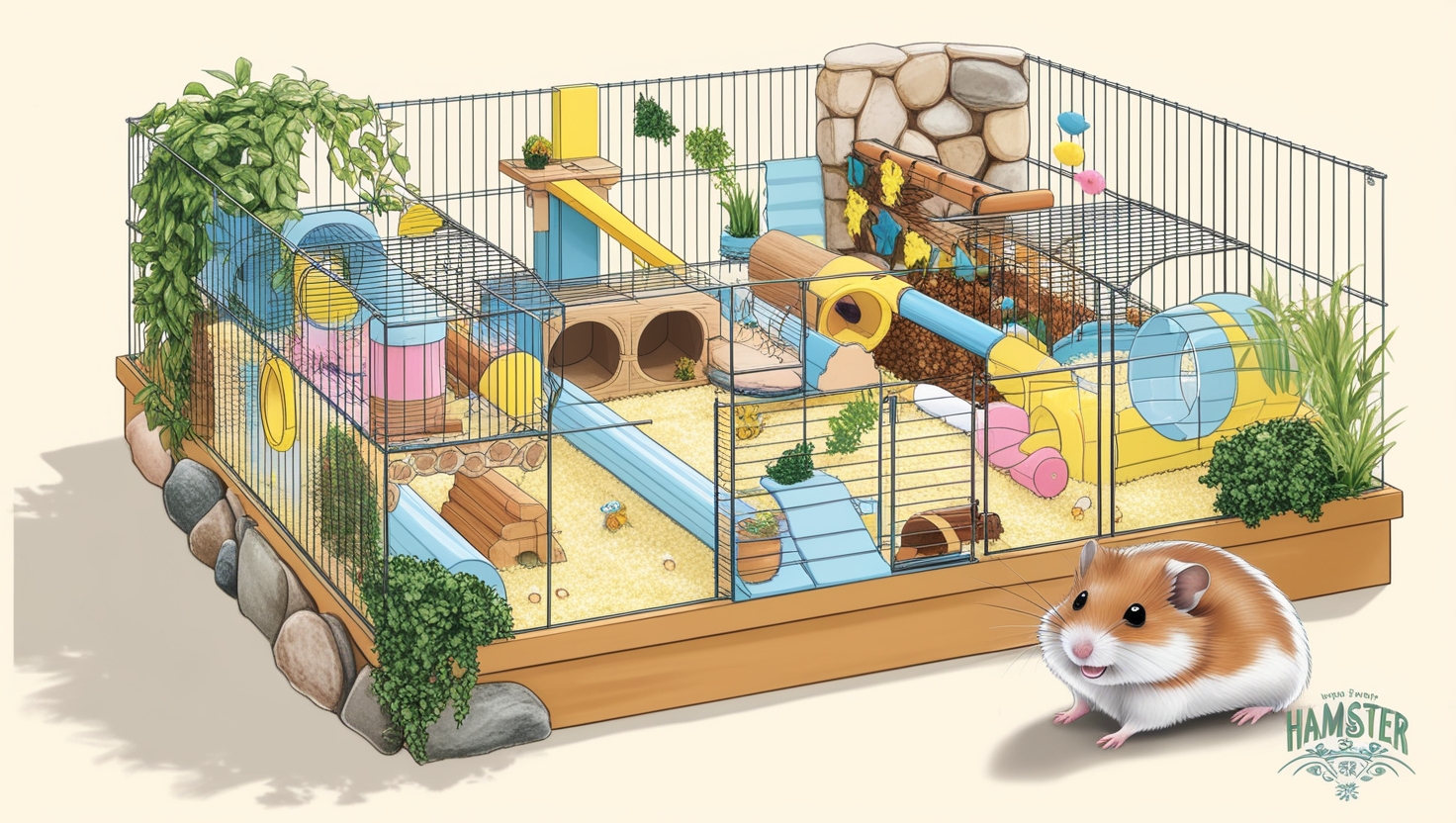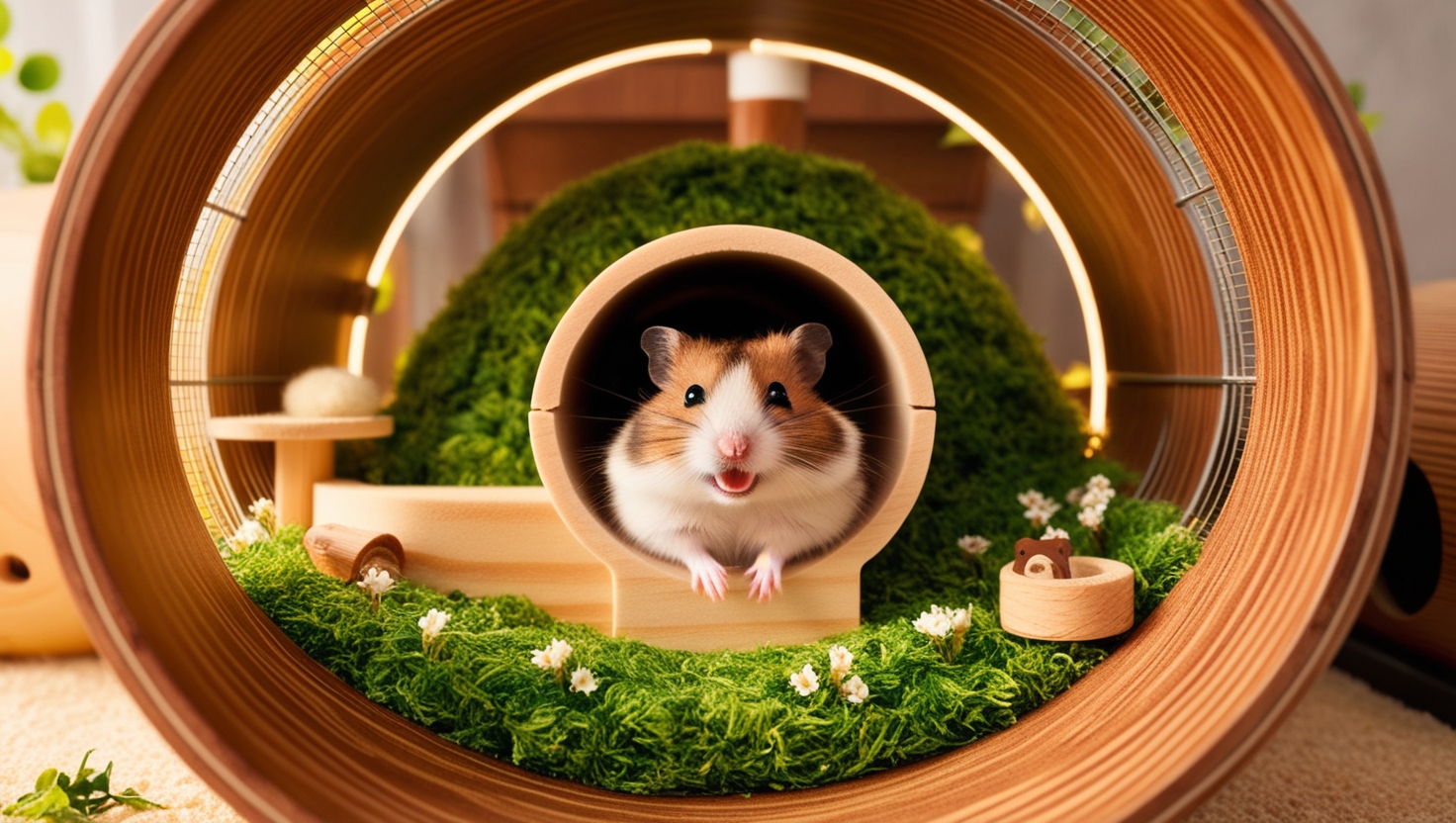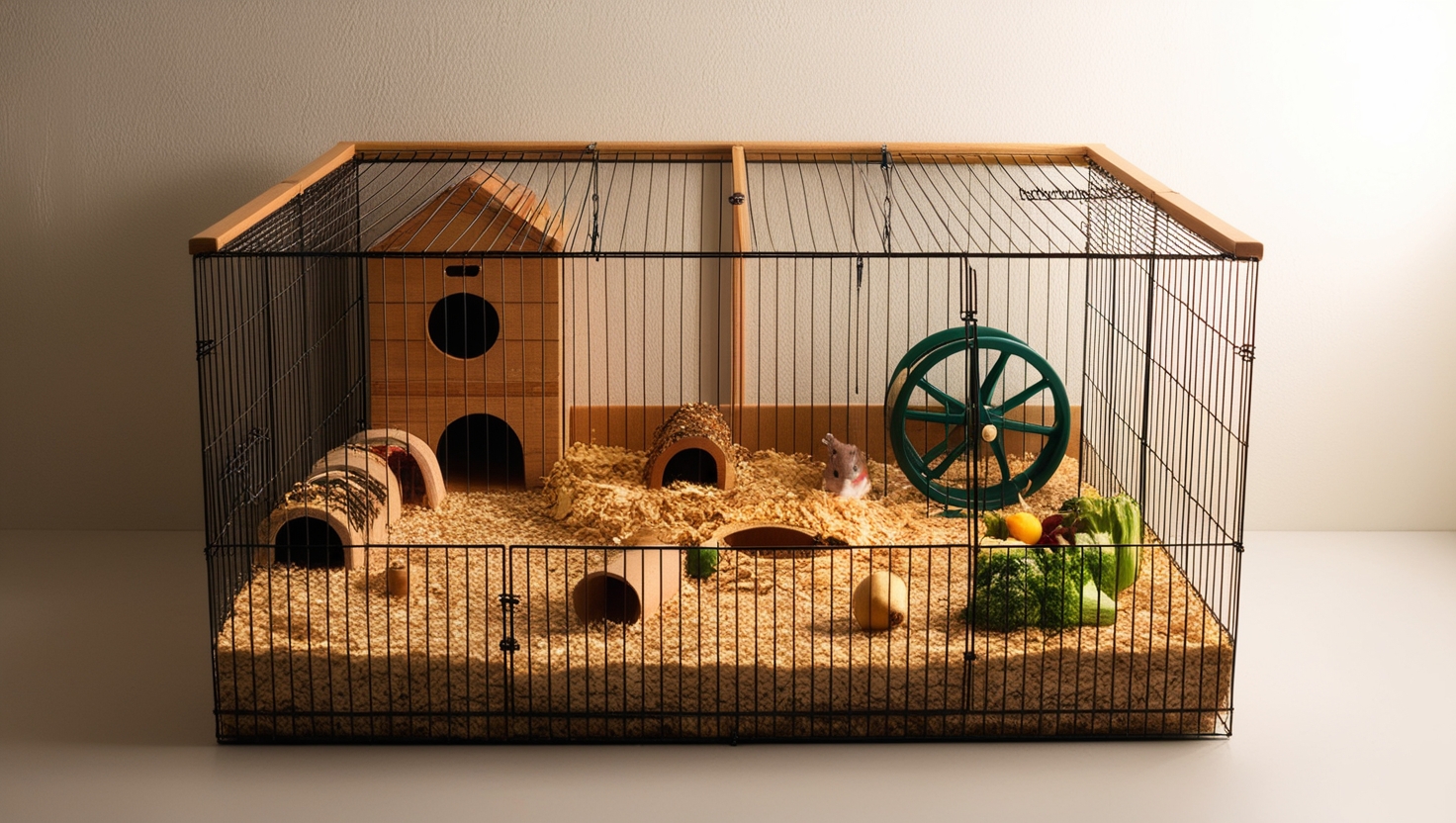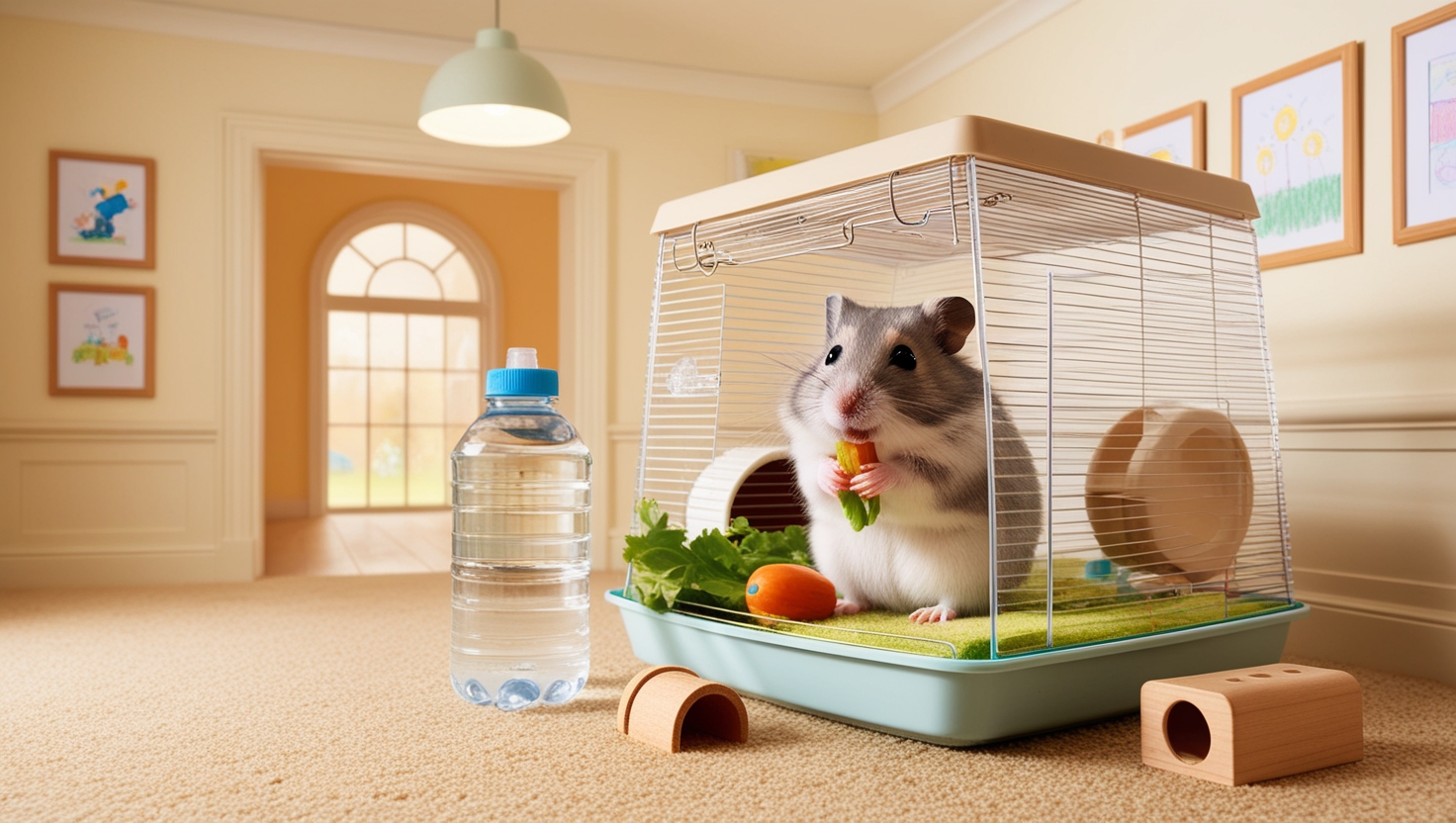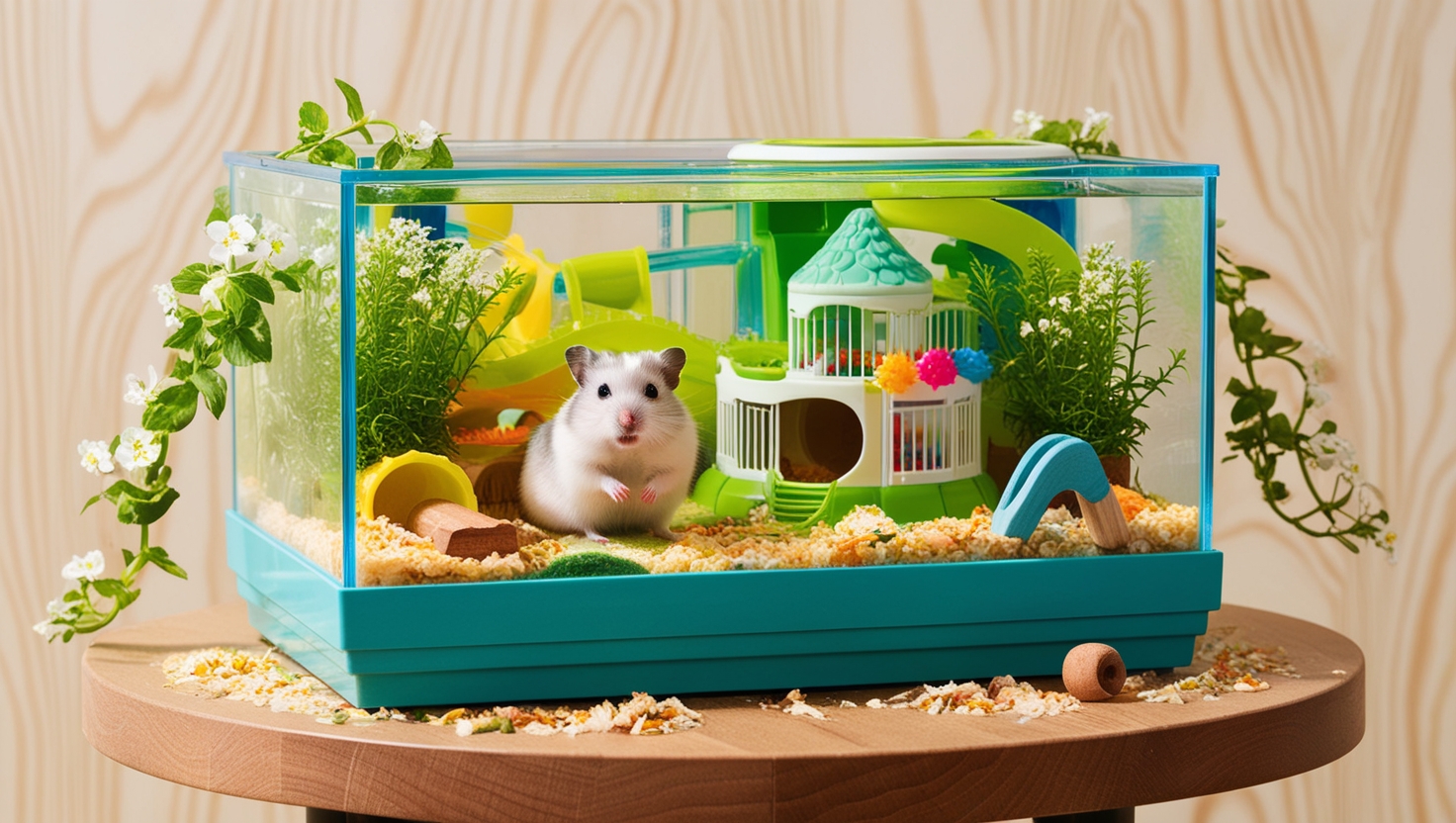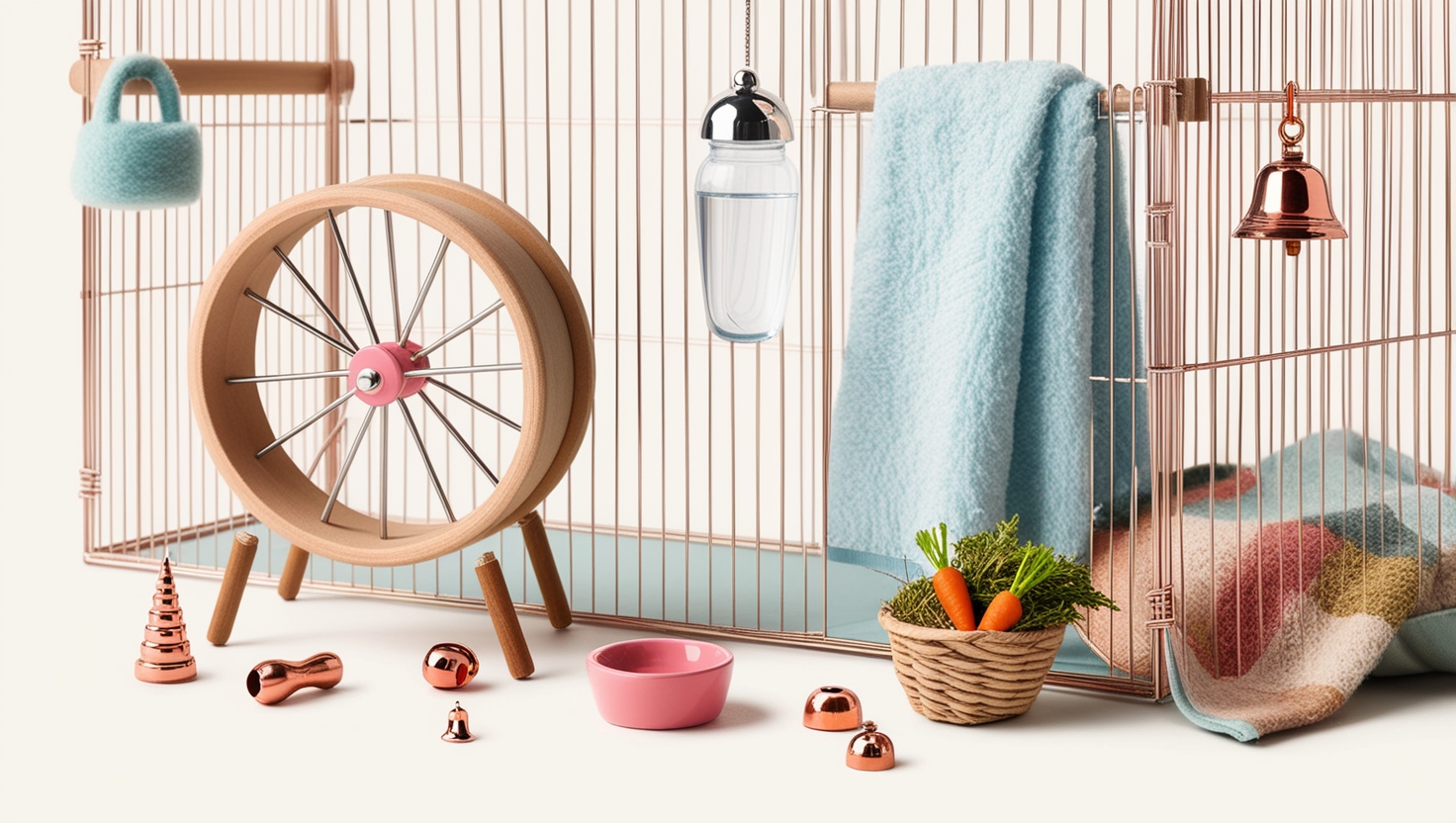Hamsters are, in some cases, a child or teenager’s first pet. Hamsters are a good “first” pet because they are friendly, small and, best of all, easy and inexpensive to look after.
With due care and attention, a hamster can live for up to five years but, to ensure that their lives are healthy, you must follow certain advice on how to care for this small rodent. That is why, at HamsterpetCare.com, we’ll you give some advice on how to look after a hamster.
How To Look After A Hamster?
The first step in learning how to look after a hamster is knowing where to put the cage. It should kept away from direct sunlight any out of draughty areas. Therefore, it is best to choose a place in your home where the animal won’t get too hot or too cold.
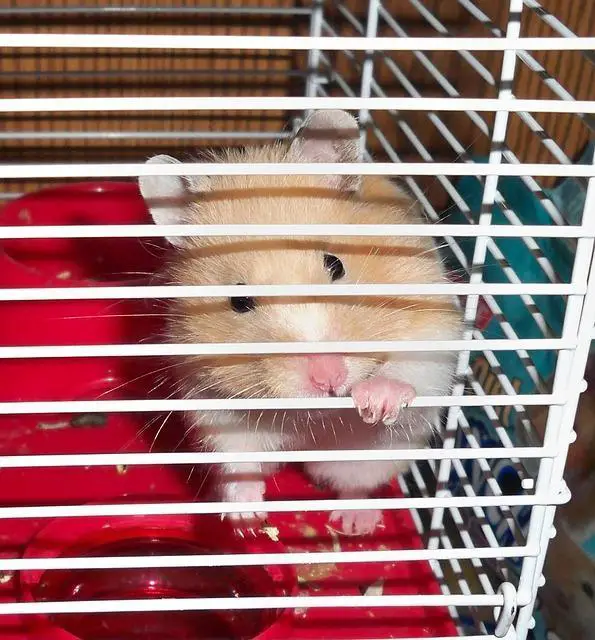
To ensure that the hamster lives in a comfortable environment, it is advisable to cover the floor of the cage with a two-inch layer sawdust or shavings. Pine wood shavings are the best because they are absorbent, non-toxic and provide a cushioned and hygienic place for your hamster.
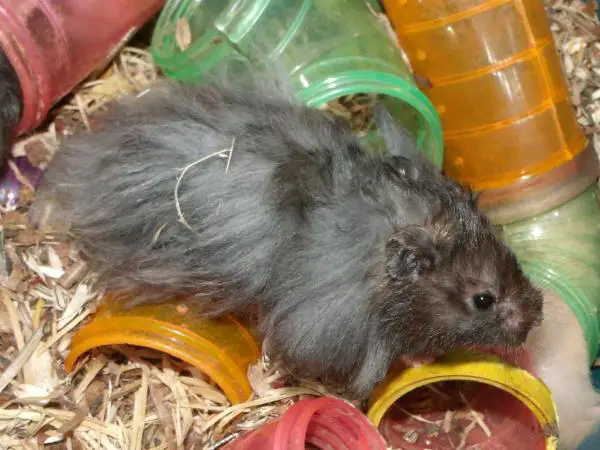
To care for your hamster properly, you must have a bottle of drinking waterconnected to the cage at an accessible height for the hamster. You should bear in mind that the water must not touch the wood chips because if they get wet they can degrade and cause your hamster to fall ill.
With regard to water, it is very important that you change the hamster’s water daily to avoid the accumulation of residue or bacteria which may cause health problems for your pet. Hygiene is essential so that your hamster has good living conditions.
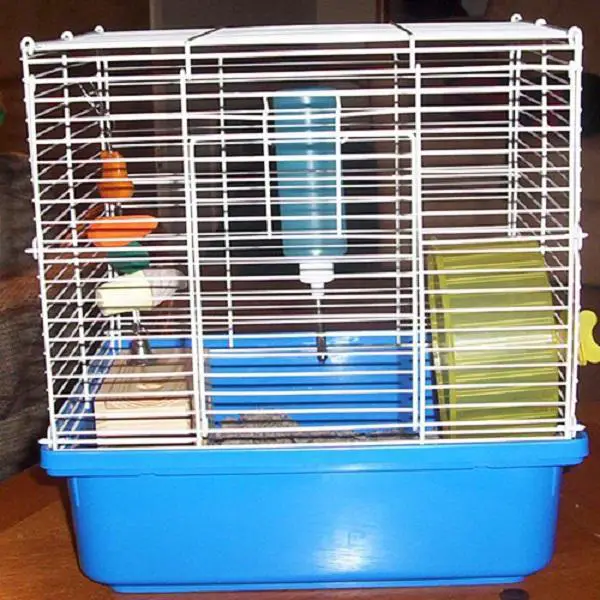
Another way to look after your hamster is to provide it with different toys for the animal to chew. For example, hamsters adore the cardboard tubes from toilet rolls, but you will also be able to find a large number of things form them to chew in pet shops or at the vets.
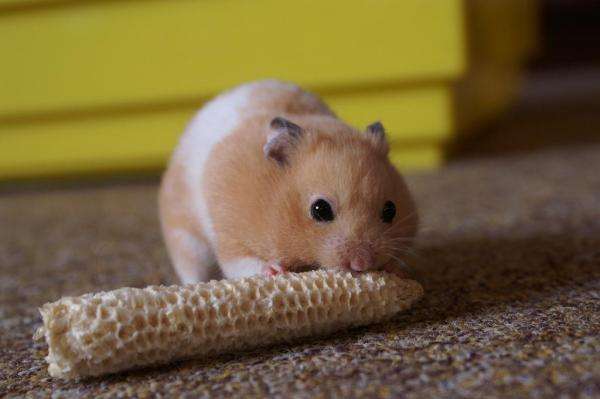
It is also very important that it has a comfortable space to sleep that is separate from the rest of the cage. Therefore, we recommend that you make a box for your hamster to sleep in by cutting a two-inch doorway into a small cardboard box. Place the box in one corner of the cage and you will have created a “bedding area” for your pet.
The hamster will fill the box with shavings and chewed pieces of cardboard, and will then use the box as a bedroom. It won’t urinate in the box, so it can be used for many months before needing to be replaced.
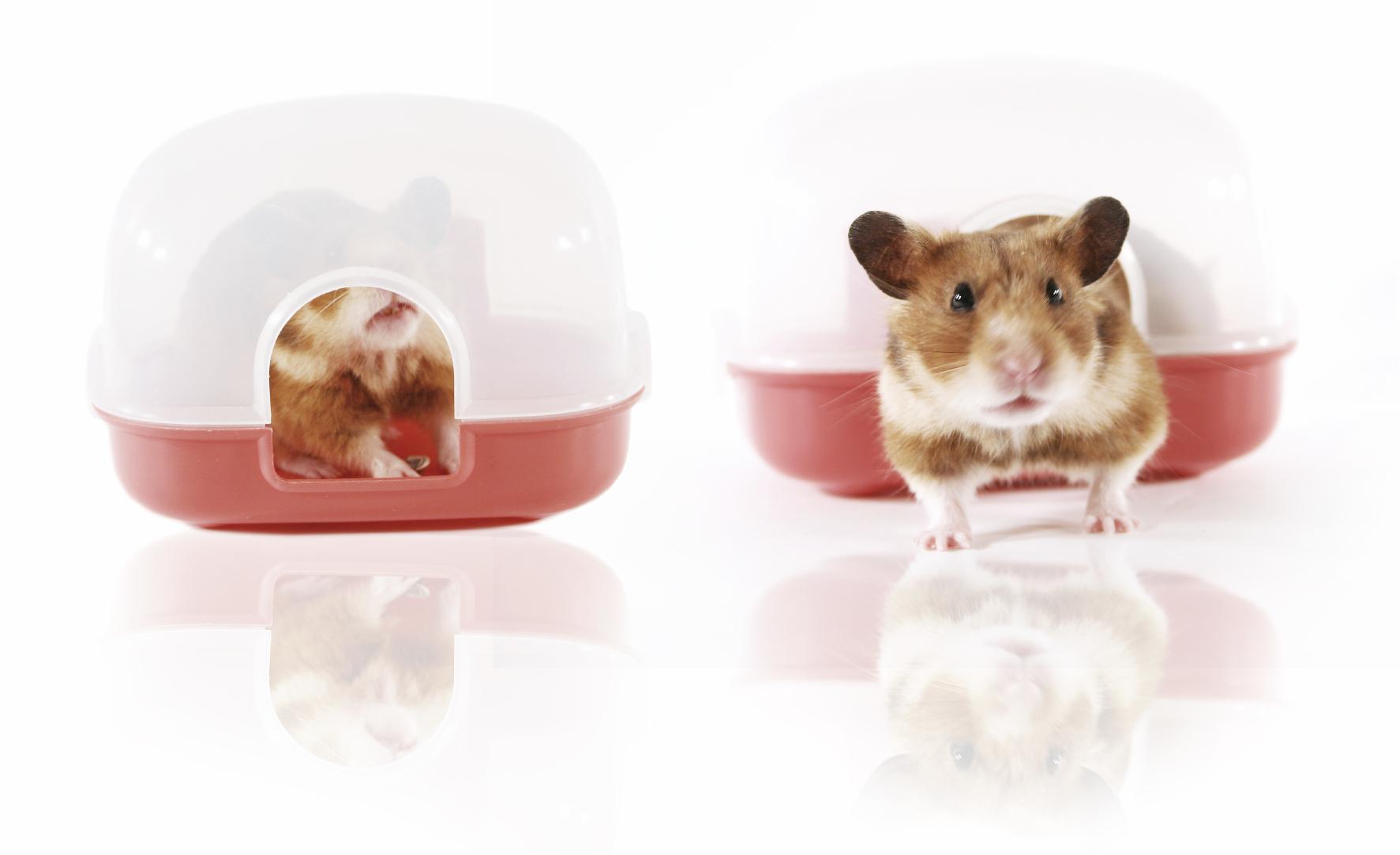
Feed your hamster a mixture of commercially prepared hamster food once or twice a day. Also feed it a small amount of fruit and vegetables throughout the year. When introducing new food, give it small portions first so that its system can get used to it.
At Hamsterpetcare.com, we’ll advise you on how to clean a hamster.

Encourage it to exercise by putting an exercise wheel in its cage. Allow it to exercise outside its cage inside a specially designed plastic ball, available in pet stores. Close the door to its bedroom, remove it from its cage and leave it to run around inside the hamster ball.
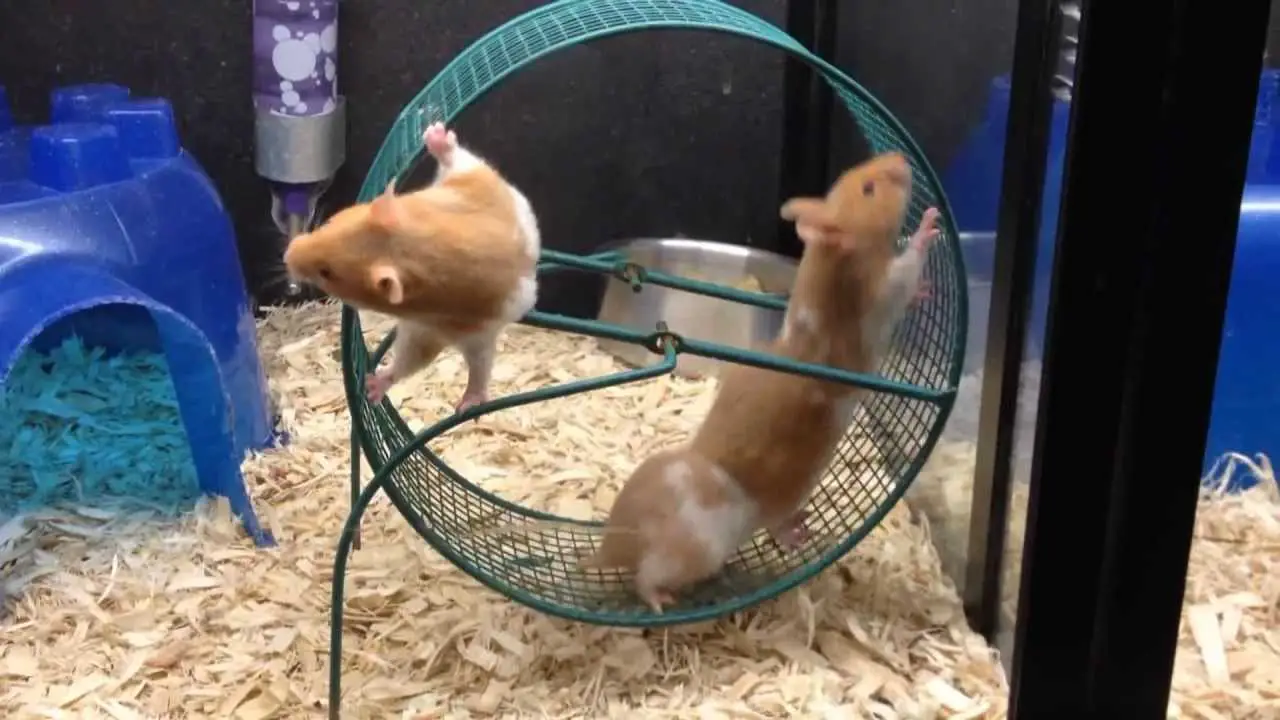
It is also important that you clean out your hamster’s cage at least once a week. Put the hamster in a safe place and clean the cage with a little disinfectant and water. Clean any waste from the inside the cage and add clean shavings before returning the hamster to its home.
It is also important that you remove any fruit and vegetables if your hamster has not eaten them within two days. Fresh foods that go moldy can make your hamster poorly.
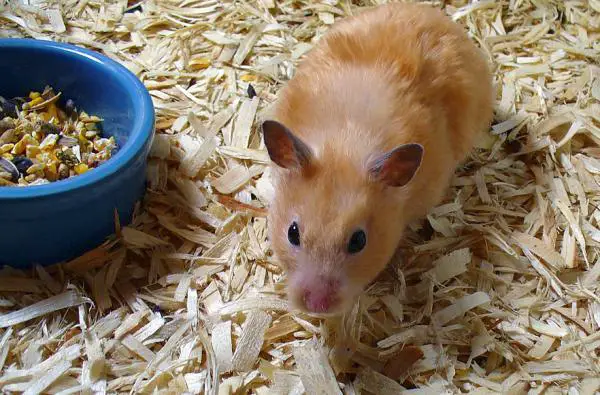
Another thing you should take into account if you want to know how to look after a hamster is that you should never give it a bath. These animals clean themselves so it is not necessary (or even advisable) to wash them. If you think that your hamster smells, then the smell is probably from the dirty shavings. Clean out the hamster’s cage more often.
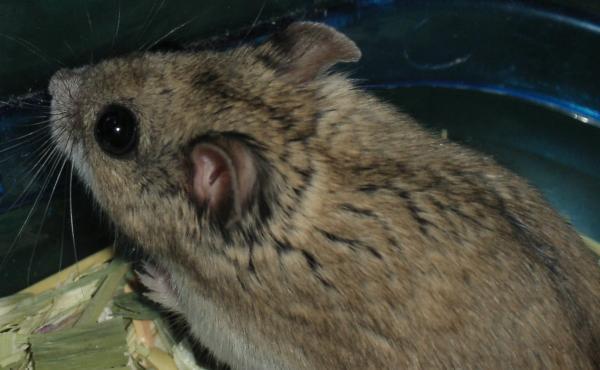
This article is merely informative, HamsterPetCare does not have the authority to prescribe any veterinary treatments or create a diagnosis. We invite you to take your pet to a vet if it has any type of condition or pain.
If you’d like to read similar articles to How To Look After A Hamster, we recommend you browse around our Pets category.
- Choose a young hamster not only because they’re cheaper but also because they’re more sociable. Choose a hamster that relaxes in your hand, cleans itself, seems a little bit fat, has bright eyes and is alert and curious about you. Only have one hamster.
- Hamsters are active during the night. The best time to clean out the cage or to exercise the hamster is in the morning or late afternoon; not at midday when hamsters prefer to rest undisturbed.
- Tame your hamster while its young, interacting with it daily and rewarding calm behaviour with vegetables.
- If the hamster wheel keeps you awake at night, remove the wheel before going to sleep, and put it back when you wake up.
- Children as young as 3 years old can care for a hamster, but they should be monitored very closely and have adult supervision for cleaning and looking after the animal. By 10 years of age, children should be able to care for a hamster by themselves.
- Introduce your hamster to people and situations with care; a scared hamster can give a painful bite.
- When you put your hamster into a plastic ball, keep the ball away from the stairs. A drop could result in serious injury.
- When choosing a place for your hamster cage, it should be away from other domestic animals that could threaten your hamster.
- Keep the hamster’s shavings warm and dry – humidity can cause deadly infections.
- Do not give in to temptation and purchase two hamsters to live together – even if they are siblings – as they will immediately reproduce (leaving you with 20 hamsters) or they will fight, often to the death.


